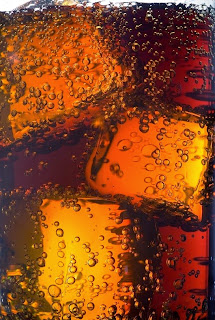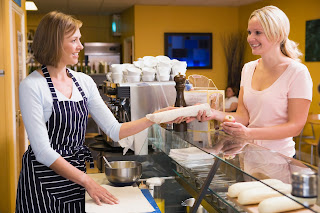Many grocery stores and warehouses have made the switch to CO2 refrigeration systems. This up-and-coming technology offers many benefits, ranging from environmental to economical. Did you know that there are many types of CO2 refrigeration systems? Below, we outline four:
Transcritical CO2 Systems
This type of CO2 system is ideal for both low-temperature (LT) and medium-temperature (MT) areas. Transcritical CO2 systems are among the most affordable CO2 refrigeration options available. They consume very little power in cool climates; however, power consumption increases drastically in very hot climates. Transcritical CO2 systems use one gas and one oil.
Subcritical Cascade CO2 Systems
Subcritical cascade CO2 systems are designed for LT and MT areas as well -- along with a high stage system. They require two gasses and two oils. Power consumption is low in various climates.
Secondary Systems
Secondary systems can be created for both LT and MT -- usually along with heat recovery for defrost and a fluid chiller system. Secondary systems are higher-powered and more expensive than other CO2 refrigeration systems, but they offer significantlly more features.
Hybrid Systems
Need a unique combination of the above systems? East Coast Refrigeration can do that for you with a hybrid system.
If you're considering switching to a CO2 refrigeration system, contact us at 631-249-4556. We know you'll love this environmentally-friendly option! Learn more about CO2 refrigeration at East Coast Refrigeration's website.
Follow us on Twitter to keep up with all of our tips and tricks!
Thursday, May 28, 2015
Thursday, May 21, 2015
Latin American Industrial Refrigeration Equipment Market Expected to Grow
A recent market report revealed that the industrial refrigeration equipment market in Latin America is expected to grow. The report, published by Transparency Market Research, found that the need for refrigeration equipment will continue to increase as trade within the region grows.
According to a press release, "Latin America industrial refrigeration equipment market was valued at USD 431.8 million in 2012 and is forecast to grow at a CAGR of 6.5% from 2013 to 2019." That means by 2019, the market will reach a whopping $668.3 million.
What type of equipment will be needed? The long list includes:
Geographically speaking, Brazil is expected to remain the "single largest market for Latin America industrial refrigeration equipment" due to the growth of beverage firms. Mexico is also showing fast growth.
We at East Coast Refrigeration strive to keep up-to-date with industry news and happenings. To see all of our updates, connect with us on Facebook, Twitter and Google+!
According to a press release, "Latin America industrial refrigeration equipment market was valued at USD 431.8 million in 2012 and is forecast to grow at a CAGR of 6.5% from 2013 to 2019." That means by 2019, the market will reach a whopping $668.3 million.
What type of equipment will be needed? The long list includes:
- Refrigeration systems
- Thermal panels
- Coils and condensors
- Parts (support products)
Geographically speaking, Brazil is expected to remain the "single largest market for Latin America industrial refrigeration equipment" due to the growth of beverage firms. Mexico is also showing fast growth.
We at East Coast Refrigeration strive to keep up-to-date with industry news and happenings. To see all of our updates, connect with us on Facebook, Twitter and Google+!
Tuesday, May 19, 2015
3 Common Repairs for Walk-In Coolers and Freezers
When you're running a business, you might not think about things like caring for your walk-in coolers and freezers. At the same time, however, these commercial refrigeration units are integral to your company's success!
Whether you're running a restaurant or a convenience store, you depend on your walk-in coolers and freezers to stay in business. As summer approaches, it's especially important to keep them running well. Here are some of the most common repairs for walk-in coolers and freezers:
1. Water leaks
A leak will not only create wet, slippery floors, but can also lead to mold growth. The cause is likely to be condensation-related. East Coast Refrigeration can help identify the issue and provide an easy fix.
2. Buildup of frost
Most walk-in coolers have built-in defrost cycles, which are meant to prevent frost buildup that could interfere with your unit's efficiency. Notice frost and ice accumulating? Your commercial refrigeration unit may need to have its settings adjusted.
3. Improperly shutting door
There are several potential causes for a walk-in cooler or freezer door that won't fully close:
Call us at 631-249-4556, and don't forget to Like us on Facebook!
Whether you're running a restaurant or a convenience store, you depend on your walk-in coolers and freezers to stay in business. As summer approaches, it's especially important to keep them running well. Here are some of the most common repairs for walk-in coolers and freezers:
1. Water leaks
A leak will not only create wet, slippery floors, but can also lead to mold growth. The cause is likely to be condensation-related. East Coast Refrigeration can help identify the issue and provide an easy fix.
2. Buildup of frost
Most walk-in coolers have built-in defrost cycles, which are meant to prevent frost buildup that could interfere with your unit's efficiency. Notice frost and ice accumulating? Your commercial refrigeration unit may need to have its settings adjusted.
3. Improperly shutting door
There are several potential causes for a walk-in cooler or freezer door that won't fully close:
- Misalignment
- Damaged door closure assist
- Torn gaskets
- Broken hinges
Call us at 631-249-4556, and don't forget to Like us on Facebook!
Monday, May 18, 2015
Kroger's First CO2 Store Honored by EPA
Supermarket giant Kroger opened its first carbon dioxide refrigerant-only store in Holland, Ohio in January 2015. Now, it's being honored by the US Environmental Protection Agency (EPA) for sustainable refrigeration!
The grocery store chain received GreenChill Platinum certification from the EPA in April. Representatives from Kroger, Hillphoenix and the EPA came together at the award-winning store to commemorate the certification.
"Platinum is the highest level of certification awarded by the GreenChill program," reports Hillphoenix. "It signifies that the store, which opened January 22, 2015, uses refrigerants with extremely low global-warming potential (GWP)."
Kroger chose Hillphoenix to create its first CO2 store because of its proven track record -- seven out of the eight stores that are currently certified as GreenChill Platinum use refrigeration systems designed by Hillphoenix.
East Coast Refrigeration is proud to be brand partners with Hillphoenix. Visit our website to learn about our CO2 refrigeration systems, and call us at (631) 249-4556 with any questions.
Don't forget to connect with us on Facebook for more tips, tricks and industry updates!
The grocery store chain received GreenChill Platinum certification from the EPA in April. Representatives from Kroger, Hillphoenix and the EPA came together at the award-winning store to commemorate the certification.
"Platinum is the highest level of certification awarded by the GreenChill program," reports Hillphoenix. "It signifies that the store, which opened January 22, 2015, uses refrigerants with extremely low global-warming potential (GWP)."
Kroger chose Hillphoenix to create its first CO2 store because of its proven track record -- seven out of the eight stores that are currently certified as GreenChill Platinum use refrigeration systems designed by Hillphoenix.
East Coast Refrigeration is proud to be brand partners with Hillphoenix. Visit our website to learn about our CO2 refrigeration systems, and call us at (631) 249-4556 with any questions.
Don't forget to connect with us on Facebook for more tips, tricks and industry updates!
Wednesday, May 13, 2015
How Summer Heat Affects Refrigeration Units
Temperatures are rising in our area, and it's only going to get hotter. Have you put anything into how summer heat will affect your commercial refrigeration?
Refrigerators and freezers can be vulnerable to hot temperatures, especially if they're not stored in a climate-controlled space. When it gets too warm, your appliances are forced to "run much hotter and longer to maintain optimal temperatures, which in turn wears out parts a lot faster," reports Sears Home Services.
If for whatever reason you do keep a commercial refrigeration unit outside, follow these tips to maximize performance:
Move any perishable items into freezers, where they'll be safe for up to 48 hours. Just be sure to keep the door closed!
East Coast Refrigeration provides installation, replacement and repair on commercial refrigeration. If the summer heat takes a toll on your equipment, call us for service: (631) 249-4556.
Don't forget to connect with us on Facebook, Twitter, Google+ and YouTube for more tips!
Refrigerators and freezers can be vulnerable to hot temperatures, especially if they're not stored in a climate-controlled space. When it gets too warm, your appliances are forced to "run much hotter and longer to maintain optimal temperatures, which in turn wears out parts a lot faster," reports Sears Home Services.
If for whatever reason you do keep a commercial refrigeration unit outside, follow these tips to maximize performance:
- Keep the area around the unit clear, which will give it space to put off heat
- Clean the condenser coil clean
- Help it maintain its temperature by keeping it fully stocked
- Consider ways to keep the temperature down, like installing in fans and vents
Move any perishable items into freezers, where they'll be safe for up to 48 hours. Just be sure to keep the door closed!
East Coast Refrigeration provides installation, replacement and repair on commercial refrigeration. If the summer heat takes a toll on your equipment, call us for service: (631) 249-4556.
Don't forget to connect with us on Facebook, Twitter, Google+ and YouTube for more tips!
Thursday, May 7, 2015
Everything You Need to Know About Safe Food Storage
If you work in the restaurant industry, you simply can't risk serving spoiled food. And if you're storing ingredients incorrectly, they may expire way before the printed date. Proper food storage will help keep your food fresh for as long as possible.
That said, here's (almost) everything you need to know about safe food storage:
Keep appliances at the right temperature. Commercial refrigerators should be kept between 35-38 degrees. If you set it too cold, things will freeze. Any warmer, and bacteria is more likely to grow. Your commercial freezer should be kept at about 0 degrees.
Put groceries in the fridge ASAP. Whether you've just received a delivery or stopped by the store for a few things, get all food items into your commercial refrigerator as fast as possible. On hot days, it will only take one hour for meat and dairy products to become unsafe.
Refer to labels for storage instructions. You may be refrigerating items that don't need to be chilled, which is a waste of space and energy. You could also be putting some foods in the pantry when they actually need to be refrigerated. Pay close attention for best taste!
If after taking these steps your food still spoils quickly, then your commercial refrigerator may need to be serviced. East Coast Refrigeration can repair your refrigeration unit, and fast! Dial (631) 249-4556 for 24-hour emergency service.
Let's connect on Facebook, Twitter, Google+ and YouTube, as well!
That said, here's (almost) everything you need to know about safe food storage:
Keep appliances at the right temperature. Commercial refrigerators should be kept between 35-38 degrees. If you set it too cold, things will freeze. Any warmer, and bacteria is more likely to grow. Your commercial freezer should be kept at about 0 degrees.
Put groceries in the fridge ASAP. Whether you've just received a delivery or stopped by the store for a few things, get all food items into your commercial refrigerator as fast as possible. On hot days, it will only take one hour for meat and dairy products to become unsafe.
Refer to labels for storage instructions. You may be refrigerating items that don't need to be chilled, which is a waste of space and energy. You could also be putting some foods in the pantry when they actually need to be refrigerated. Pay close attention for best taste!
If after taking these steps your food still spoils quickly, then your commercial refrigerator may need to be serviced. East Coast Refrigeration can repair your refrigeration unit, and fast! Dial (631) 249-4556 for 24-hour emergency service.
Let's connect on Facebook, Twitter, Google+ and YouTube, as well!
Subscribe to:
Posts (Atom)






